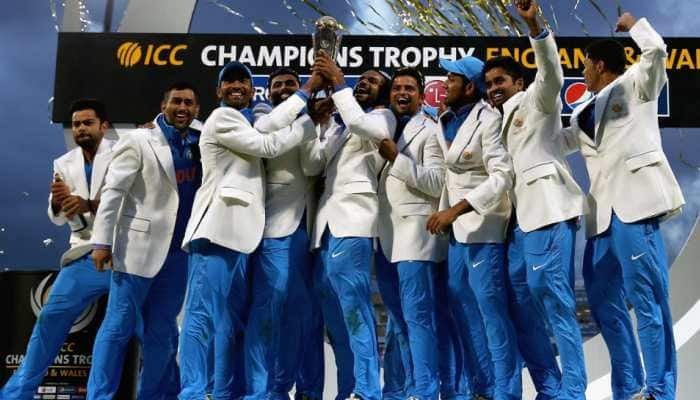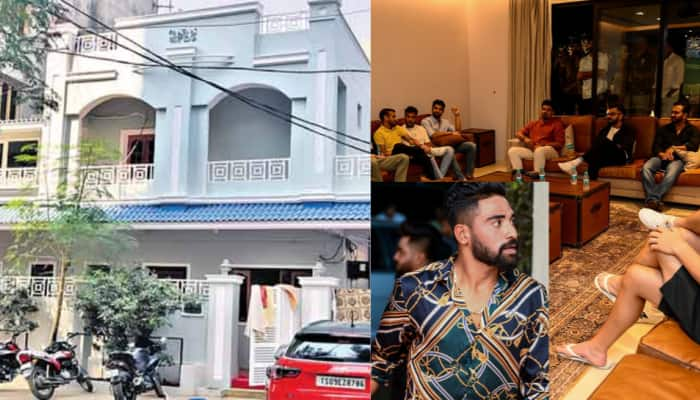Asaram convicted under POCSO Act: Govt guidelines on how media should cover rape cases
There are several guidelines that the National Commission for Protection of Child Rights (NCPCR) has given on how media should cover cases which come under the POCSO Act.
Trending Photos
)
JODHPUR: Self-styled godman Asaram was on Wednesday convicted of raping a teenager at his ashram in 2013. As the court read out its verdict, the media was barred from entering the courtroom to maintain law and order. The court rejected the petitions seeking entry of media persons in Central Jail of Jodhpur for the coverage of Asaram Bapu rape case judgment.
The 'godman' has been convicted under Section 376 of the Indian Penal Code and the Protection of Children from Sexual Offences (Pocso) Act. There are several guidelines that the National Commission for Protection of Child Rights (NCPCR) has given on how media should cover cases which come under the POCSO Act.
It states that media has to secure the identity and privacy of the child. "Disclosing or publishing the identity of the child victim by mentioning name, address, neighbourhood, school name and other particulars is punishable with imprisonment of not less than six months but extendable to one year or with fine or with both. It also prohibits making of negative reports that cause harm to the child’s reputation. Provided that for reasons to be recorded in writing, the Special Court may permit such disclosure, if in its opinion such disclosure is in the interest of the child," the NCPCR states in its User Handbook for Implementation of the POCSO Act.
Here are the Dos and Don'ts that the government has listed out for media in connection with the coverage of rape cases.
| Dos | Don'ts |
|---|---|
| Be exact when describing the nature of the offence–use the right terminologies | Use ambiguous or minimizing language (e.g."sexual relationship with a child" or "affair with a minor" etc) |
| Be clear that 'consent is immaterial' | Blame the victim. It is NOT his or her fault. The abuser is solely responsible for this crime |
| Hold institutions or individuals in position of power accountable | Refer to abuse as an "alleged accusers." They are not "alleged" |
| Report on relevance of CSA in society; look beyond the story as it unfolds in the criminal justice system | Assume the victim is alone; often it takes one person coming forward for others to share like experiences |
| include information about the social and cultural impact of CSA cases | Downplay the severity of this crime, the long-term effects of which can be devastating |
| Focus on multiple aspects of the case including rehabilitation, prevention. Source experts in the field, such as child advocates, lawyers, and psychologists. Always check your facts with credible organizations |
Only focus on the role of police and judiciary |
| Seek help of a support Person/NGO or a person known to the victim and the family before interviewing | Directly approach the victim and family on your own with all the questions |
| Read the case file (if available) or the copy of the FIR before approaching the victim and families with specific questions | Ask them questions directly on the offence and its nature or publish the FIR in your article |
| Take consent of the parent or the trusted adult/organization before talking to the victim | Directly approach the victim without parental consent |
| Focus on the modus operandi of the offender and grooming process to create larger awareness | Focus only on the nature of sexual offence e.g. Rape etc |
| Highlight cases from different socio-economic strata and high profile paedophiles | Label this as a problem pertaining to poor and uneducated communities |
The POCSO Act, 2012 was enacted by the government to provide an extremely strong legal framework for the protection of children from offences of sexual assault, sexual harassment and pornography, while safeguarding the interest of the child at every stage of the judicial process, by incorporating child friendly mechanisms for reporting, recording of evidence, investigation and speedy trial of offences through designated Special Courts. The NCPCR has been mandated to monitor the implementation of POCSO Act, 2012.
Stay informed on all the latest news, real-time breaking news updates, and follow all the important headlines in india news and world News on Zee News.
Live Tv







)
)
)
)
)
)
)
)
)
)
